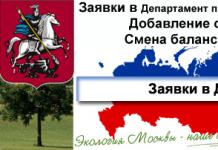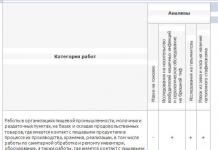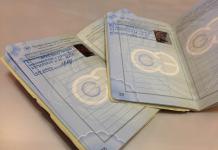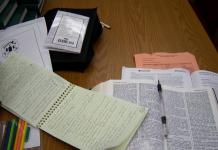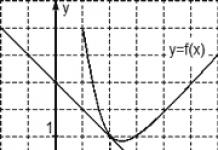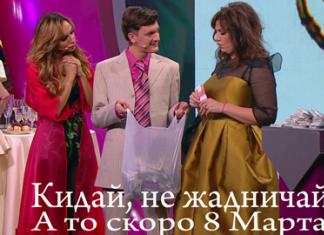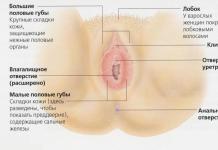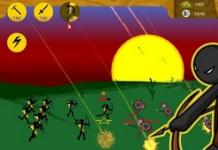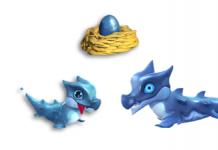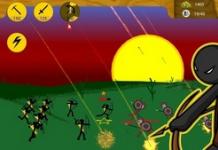The word "one" in English language can replace a noun in singular to avoid repeating the already mentioned object.
2
The word "ones" is used for the plural. It is permissible to put before both forms demonstrative pronouns, adjectives and articles.
| one (singular) | ones (plural) |
| this one / that one | these / those |
| the one | the ones |
| the black one | the black ones |
| a small one | (some) small ones |
Table: Substitute words one/ones
Which umbrella do you want? This one or that one? What umbrella do you want? This one or that one?
Which shoes are yours? These or those? What shoes are yours? These or those?
Which book shall I take? The one on the table. What book should I take? The one on the table.
Which jeans are you going to wear? The ones I bought yesterday. What jeans are you going to wear? The ones I bought yesterday.
I don't like the red tie but the green one would suit me. I don't like a red tie, but green would suit me.
This photo isn't very nice. The other one looks better. This photo is not very good. The other one looks better.
Don't buy the green apples. Buy the red ones. Don't buy green apples. Buy red.
That restaurant is expensive. Let's go to a cheaper one. That restaurant is expensive. Let's go to a cheaper one.
I broke my glasses and now I need some new ones. I broke my glasses and now I need new ones.
Small animals eat less than big ones. Small animals eat less than big ones.
Also remember that one/ones is never used for uncountable nouns.
I think modern music is more popular than classic Not right: than classic one). I think modern music is more popular than classical music.
Many people think that English is a very difficult language, because it does not look like Russian. Of course, it differs in many ways, because both English and Russian have their own rules and patterns.
English is very organized compared to Russian. Each word must be in its place. Based on this, following a strict word order, it is impossible to avoid repetition and tautology. Repetition is an undesirable phenomenon in any language. That is why all languages have pronouns and other ways to replace recurring proper nouns and common nouns.
There are many ways in English that help avoid repetition. One of them is the replacement of nouns with the pronoun one .
It is about him that our today's article, which will help you figure out why the numeral "one" is used so often in English, when it is completely useless.
Speaking in Russian, we can “throw out” some words from a sentence without violating its grammatical structure, but in English you cannot just take and throw out words at will. To illustrate this, let's look at an example:
I bought two books: a new one and an old one. The new one was more expensive than the old one.
As you can see, having designated an object at the beginning of a sentence (a book), we no longer name it, but use only adjectives that refer to it. This sentence sounds great in Russian, we really speak like that in life and this is considered the norm.
But to say the same thing in English, you need to think differently, nothing can be thrown out of the sentence:
I bought two books: a new book and an old book. The new book was more expensive than the old book. — I bought two books: new book and an old book. The new book was more expensive than the old book.
As you can see, the word "book" must be used with adjectives that refer to it. Yes, indeed, no matter how ridiculous and stupid it may sound, but in English it is really necessary to repeat these words. After reading or saying such a sentence, the word book becomes simply unbearable. And how can you not come up with ways to replace to avoid repetition?
Of course, in real life no one says that, but the need to mention the addition does not disappear from this. That's what the word one is used for.
This is how our example would sound in real life:
I bought two books: a new one and an old one. The new one was more expensive than the old one. — I bought two books: a new one and an old one. The new one was more expensive than the old one.
Now that we have replaced the word book with one , the sentence is accepted normally.
We usually perceive the word one as the numeral "one", but even more often it is used in English as a substitute word. One takes the place of a noun in the singular to avoid repeating it:
We could say I am the youngest child, but since children have already been used in the sentence, the best option will replace child with one .
Which is your house? — The one with big windows. - Which house is yours? — The one with large windows.
One could say The house with big windows, but hardly anyone would say that in reality. There is no need to repeat the word house in the answer, as it was already mentioned in the first part of the sentence.
If the word you need to replace is in plural , then it cannot be used. In this case, the word ones will be used.
Which shoes to you like more: red ones or black ones? Which shoes do you like more: red or black?
you give me other glasses? These ones are too dark for me. Can you give me other glasses? These are too dark for me.
The green apples are cheaper than red ones. Green apples are cheaper than red ones.
The words one and ones, as a rule, are not translated, but can be combined with various determiners, and this may slightly change their meaning. Let's look at various examples:
| ONE | ONES |
|---|---|
| With demonstrative pronouns | |
|
Since this is a singular number, one only matches this and that. I don't like this hat. Give me that one, please. — I don't like this hat. Give me that one, please. There are two cars in the garage: this one is mine and that one is my husband "s. - There are two cars in the garage: this one is mine, and that one is my husband's. Moreover, one is not translated into Russian. |
Only these and those can be used with the substitute word ones. But unlike the substitute one, ones often drops out after demonstrative pronouns: Which jeans will you wear? These (ones) or those (ones)? What jeans will you wear? These or those? |
| With the article the | |
|
With the definite article, one takes on the meaning of a specific subject, and usually after the one there is an explanation: what kind of subject. The one that, which: Can you give me the newspaper, the one I bought today. Give me the newspaper, the one I bought today. - What shop offers the best prices? - The one next to the baker "s. - - Which store has the best prices? - In the one near the bakery. Sometimes you can indicate what kind of subject is being discussed by adding an adjective to the word one: I don't like the sports channel. I prefer the music one. — I don't like the sports channel. I prefer musical. He will not wear the blue shirt. He will wear the write one. He won't wear a blue shirt. He wears white. |
With the definite article, ones takes on the meaning of a specific subject, and usually after the ones there is an explanation of which items. The ones usually translated into Russian as Those who: These are not your keys. Theonesonthetableareyours. These are not your keys. The ones on the table are yours. - What boxes should I take? - The ones on the floor. — What boxes should I take? In the same way the substitute one s can be defined by an adjective with the article the: The yellow apples are sour. The red ones are sweet. - Yellow apples are sour. Reds are sweet. The blue jeans don't fit you. The black ones are much better. Blue jeans don't suit you. Black is much better. |
| With article A | |
|
One will be combined with the article a if you are talking about an indefinite object, of some type, it does not matter to you what kind of object it is, it is just one of many similar ones: This spoon is dirty. Give me a clean one. This spoon is dirty. Give me clean. I don't want to live in a small flat. I want to find a big one. I don't want to live in a small apartment. I want to find a big one. |
The word ones is plural, so it does not combine with the article a. |
| With the word some | |
|
The substitute one is not used with the word some. |
The substitute ones is used with the qualifier some, which means "a certain amount": These spoons are dirty. Give me some clean ones. — These spoons are dirty. Give me clean ones. His shoes are too old. He wants to buy some new ones. These shoes are too old. He wants to buy new ones. |
| with the word other | |
|
Article an usually written together with the word other. Another one will mean one more: I liked this chocolate. I am going to take another one. — I liked this candy. I'm going to take another one. Theotherone- another, not this, the second of the proposed: This jacket is too loose. Give me the other one. This jacket is too wide. Give me another. |
When we mean one more, more, more then it will be in english someotherones: If you liked these chocolates, take some other ones. If you liked those sweets, take more. If we are pointing to certain things and mean others suggested, others mentioned above, then we say the other ones: Some students were writing. The other ones were listening. — Some students wrote. Others listened. |
In addition, the words one and ones are very common in the question, with the word Which..? ( Which one?) Often, when two things are pointed out and there is no need to name them, a question is asked that begins Whichone or Which ones:
Here are two books. Which one are you reading? - There are two books here. Which one are you reading?
Look at these children. Which one is the youngest? “Look at these kids. Which of them is the youngest?
You have got so many pairs of jeans. Which ones are your favourite? — You have so many jeans. Which ones are your favourites?
That's all you need to know about the word one except that it's a numeral " one".
And remember: the more practice, the easier it will be for you to use the learned rules in live communication. I wish you success!
In English there are so-called SUBSTITUTE WORDS. They are needed to avoid repeating the same word, phrase, part of a sentence, or the entire sentence. Substitute words may not be translated into Russian.
When it comes to substitute words, one more difference between Russian and English becomes clear. In English, words - substitutes clearly show how strictly the order of words in a sentence should be followed and the purpose of each word is regulated by rules that cannot be derogated from. If it is necessary to avoid the repetition of a particular word, then it is impossible, as in Russian, to simply omit it.
I will write examples in Russian so that it is clear what is at stake and highlight those places in the sentence (…), where in English the substitute word must appear.
I don't want this book, give me that (…).
I'm looking for a home, I would like ( …) with large garden and quiet location.
My phone is broken and I want to buy myself new (…).
What song do you want to listen to? - Here this (...).
I would like to buy a kilo of apples. - Which (…)? – Red (...).
The pronoun ONE in a sentence can perform two important functions:
1) which are called indefinitely personal.
One should't get upset about stupid things. = No need to be upset because of stupid things.
2) The pronoun ONE is used instead of the previously mentioned countable noun in singular or plural. Then it is called a substitute word (“prop-word”). Uncountable nouns (milk, friendship, happiness, bread, etc.) cannot be replaced by the substitute word ONE.
The substitute word ONE differs from the indefinite pronoun ONE in that the substitute word can be preceded by a noun determiner (article, demonstrative pronoun, etc.), an adjective, and it can be used in the plural.
I will write a few sentences in English with important clarifications.
1. In short answers or in sentences, where the substitute word is ONE It has sense of singularity, it echoes the indefinite pronoun SOME.
Compare the following pairs of sentences.
Have you got any questions? Yes, I have ONE. (= a question) = Do you have any questions? Yes, there is one (question).
Have you got any question? — Yes? I have SOME. (= some questions) = Do you have any questions? – Yes, there are several (questions).
Have you got any books about animals? I'd like to borrow ONE. (a book on History) = Do you have any books about animals? I would like to borrow one (book).
Have you got any pencils? I’d like to borrow SOME.(some pencils) = Do you have any pencils? I would like to borrow some (pencils).
2. Since adjective cannot stand without a noun, then, if necessary, the substitute word ONE follows the adjective and is not translated. In this case, it can be called a “dummy”, it eliminates the “gap”. So, the adjective is often combined with the substitute word ONE and can be singular or plural.
There is a right answer and wrong ONE. = There is a correct answer and an incorrect (answer).
Your plan is a good ONE on paper. = Your plan is a good (plan) on paper.
I'd like a melon - a nice ripe ONE. = I would like a melon - good and ripe (melon).
I don't like these yellow flowers. Please give me some blue ONES. = I don't like these yellow flowers. Give me some blue (flowers).
The new designs are better than the old ONES. = New projects are better than old ones (projects).
3. Singular demonstrative pronouns THIS and THAT are used with the substitute word ONE.
Here are two apples. Will you have this one or that one? = Here are two apples. Do you want this (apple) or that (apple).
This house is as big as that one. = This house is as big as that (house).
4. The substitute word ONE is used with “Which”, especially when it comes to distinguishing the singular from the plural.
Here are some books on English history. Which one do you want? = Here are some books on English history. What (book) do you want?
I'd like a pound of apples. – Which ones? – Red ones. = I would like a pound of apples. - What (apples)? - Red (apples).
Generalizing words with homogeneous terms- 1. If the homogeneous members of the sentence are preceded by a generalizing word (or phrase), then a colon is placed in front of them, for example: And on the sides, the steppe, which has died out from the heat: tiredly fallen grasses, dull, lifelessly shining salt marshes, ... ... A guide to spelling and style
Proverbs (substitutes for verbs), pronomials, proadjectives, proadverbs (various categories of pronouns) either have a deictic (indicative) function or provide coherence of speech: replacing full-meaning words in connected speech, they serve the purpose ... Explanatory Translation Dictionary
Word- The word is the main structural and semantic unit of the language, which serves to name objects and their properties, phenomena, relations of reality, having a set of semantic, phonetic and grammatical features specific to each ... ... Linguistic Encyclopedic Dictionary
Kurdyumov, Vladimir Anatolievich- Vladimir Anatolyevich Kurdyumov Date of birth: May 13, 1965 (1965 05 13) (47 years old) Place of birth: Moscow Country ... Wikipedia
Chairman of the Council of People's Commissars of the USSR- IN AND. Lenin, the first chairman of the Council of People's Commissars of the USSR Chairman of the Council of People's Commissars of the USSR (abbr.: official chairman ... Wikipedia
United Russia- This term has other meanings, see United Russia (meanings). "EP" request is redirected here; see also other meanings. "United Russia" ... Wikipedia
178th Missile Regiment- 178 rp ... Wikipedia
Government body- (State authority) A state authority is a subdivision of the apparatus of state power, designed to manage affairs in the country Signs of state bodies, types of state bodies, state authorities of Russia, ... ... Encyclopedia of the investor
NTV- This term has other meanings, see NTV (meanings). NTV JSC NTV Television Company ... Wikipedia
Books
- The world. 1 class. Thematic control of students' knowledge. Federal State Educational Standard, Barylkina L.P., Perova O.D. The world"for students elementary school. The benefit is aimed at early ... Buy for 164 rubles
- Notebook. Thematic control of students' knowledge. The world. Grade 2 Federal State Educational Standard, Barylkina L.P. The manual was developed in accordance with the Federal State Educational Standard and was compiled taking into account the requirements of the program on the subject "The World Around" for elementary school students. Materials of the manual are recommended ...
He's on the other side of the road - He is on the other side of the road.
give me another sheet of paper - Give me another sheet of paper.
He has other intentions - He has other intentions.
As a pronoun-noun instead of a noun in the singular is used another, and instead of a noun with a definite article - the other:
The others didn't come - others did not come.
I ate all the cake. Will you give me another? - I ate a cake. Will you give me another one?
Pronouns each And every
Pronoun each every used in relation to a limited number of persons or objects. Each It is used both as an adjective pronoun and as a noun pronoun.
As an adjective pronoun each used before singular countable nouns:
There are new houses on each side of the road - There are new houses on each side of the street.
Each student in the group has to hand in an essay tomorrow - All students in the group must hand in an essay tomorrow.
When each is used as a pronoun-noun, then the preposition is often used of:
Each of you has to read this book - Each of you should read this book.
Pronoun every everyone, everyone Unlike each used when a limited number of persons or objects is not meant. Every used only as an adjective before countable nouns in the singular:
Not every person in the USA knows English - Not all people in the USA know English.
I see him every day - I see him every day.
Each And every used in a sentence immediately to give logical stress:
Each and every of us has to be proud of our motherland - Each of us should be proud of our homeland.
Every in conjunction with body, one, thing forms pronouns everybody, everyone each, every, all , everything all . These pronouns are used only as noun pronouns:
Everything is fine - Everything is fine.
Everybody is here - Everything is here.
Pronoun one
Pronoun one used as a pronoun. One used to denote an indefinite person in sentences corresponding to indefinite personal sentences in Russian. One in this case serves as the subject:
One can never be sure what happens next - It is impossible to predict what will happen in the next minute.
One never values happiness until it is gone - Happiness is not appreciated until it is gone.
Often one used with verbs must, should ought, can, may:
One can do whatever he wants here - Here you can do whatever you want.
One used to avoid repeating a noun in the singular when it should be repeated with a definite article, in the presence of an individualizing definition. In this case before one there is a definite article:
This book is more interesting than the one I read last time - This book is more interesting than the one I read last time.
One used after adjectives to replace a previously mentioned countable noun to avoid repetition:
I don't like the red hat. Give me the blue one- I don't like the red hat. Give me blue.
These are sweet pickles. Can I have a can of dill ones? These are sweet pickled cucumbers. Can I have a jar of salty?
One used to replace a previously mentioned noun after pronouns this, that, which, another, the other. After pronouns these, those pronoun one not used. However, this rule is increasingly violated in modern colloquial speech:
This chair is for you. I'll take that one This chair is for you. I'll take that one.
These lamps are better than those (ones) These lamps are better than those.
SUBSTITUTE WORDS IN ENGLISH
GENERAL INFORMATION
Substitute words are words that replace other words to avoid repetition or to shorten/simplify speech. It is very difficult to draw a clear line between substitute words and pronouns, since very often pronouns serve as substitute words. However, not all pronouns can serve as substitute words; Only noun pronouns can be substitute words. These include personal pronouns in the nominative case, demonstrative pronouns, some indefinite pronouns, interrogative pronouns.
“I didn't by
it
(the typewriter) for antique!” “I didn’t buy this typewriter as an antique!” “Tear the pages!”said Annie. “Why on the world you want me to do
that
?” "Tear the pages," Annie said. "Why do you want me to tear them apart?"
I don't like this picture. That
one
is more beautiful. - I don't like this picture. That one is more beautiful.
[
III
,
37, 134
]
Who said life is easy? Who said life is easy?
Interrogative pronouns replace nouns in a sentence that are unknown to the speaker.
Separating the concepts of “pronoun” and “word substitute”, it is worth noting that the pronoun is that part of speech that plays the role of either a noun or an adjective in a sentence. For example, the word who, which plays the role of a noun in a sentence, is a pronoun, while the word how, which replaces an adverb in a sentence, is not a pronoun.
Substituent words do not have such strict limits. The concept of "word substitute" is more extensive than the concept of "pronoun". In addition to noun pronouns, substitute words can be nouns, verbs, adjectives, and even substitute phrases.
Noun: Trying to have an idea wasn't the same thing as getting an idea. “Trying to get an idea wasn't the same as getting one. [ III , 37,131 ]
Take it all stuff out of my backpack. “Get all these things out of my backpack.
He would know the real stuff when he found it - He would know the real good idea if I could find her.
Verb : - I'll wait for you outside. - I'll wait for you outside.
- yes, do that, please. Yes, wait for me there.
“I still wish you were free” Do you?” - "I still want you to be free" "Really?" [ III , 37, 146 ]
I said I was going to Jamaica and my sister was like “Yeah, that’s a great idea you have. You need to have a rest” – I said I was going to Jamaica and my sister said “Sure, great idea. You need to rest."
But despite this, much more attention in linguistics is paid to pronouns than words to substitutes, since pronouns are considered an important part, without which no language in the world is conceivable. Nevertheless, very often in everyday speech we use substitute words along with pronouns.
In English, as in most languages, scholars have carefully studied pronouns and defined all pronouns. The same cannot be said about the words substitutes. It is almost impossible to list all the words substitutes in English. It is also impossible to describe the limits of the use of these words. For example, the word substitute thing (literally - a thing) in English it can replace anything: this word can be applied to animate and inanimate objects, to concrete and abstract concepts; colloquial word thing can replace the whole situation previously described. For example:
Jessie met Mat the other day. As you know he'd dumped her about a month ago, and that day he started shouting at her because she is dating Mickey now. That thing made Jassie's mother totally mad. Matt saw Jessie the other day. As you know, he dumped her about a month ago, and that day he started yelling at her because she was now dating Mickey. This made Jessie's mother very angry. [ III , 3 8 , 139]
Some scholars have written about substitute words, dividing them into just two groups. Rubtsova M. G. writes: “In the English scientific text there are often auxiliary words that are used instead of the words already mentioned in this or the previous sentence. There are substitute words for both nouns and predicate verbs. When translating sentences with such substitute words, it is usually recommended to repeat the replaced word. .
Berkner S.S. and Penkov B.V. write about substitute words that very often substitute words are found in colloquial speech. Vulgarisms are often found among them. Here is what they write:
“Frequency are words of broad semantics stuff , thing , story as well as vulgarism shit. They are often used in combination with pronouns. this thing , stuff like that. They are especially common in the speech of students, but sometimes they are also found in the speech of teachers. Similar words and phrases can be used to denote a common member of a series of a homogeneous enumeration: things like that , stuff like that , shit like that. These are substitute words, their meanings can only be understood in context.
Couldn't tell her I "d gone home or something .
“There is an intensive use of pronouns in the language of the school this , ‘this one’, these , those, ‘these ones’ to replace full-valued words, referring to them. Such units have the function of an indicative element, directly correlating the content of speech with some referent of the real situation (or with what the speakers know from common experience), and also to ensure continuity in the syntactic structure. For example:
One of those guys that wear those suits; he had these very broad .
It should be noted that such expressions are characteristic both for the language of schoolchildren and for the spoken language in general.


